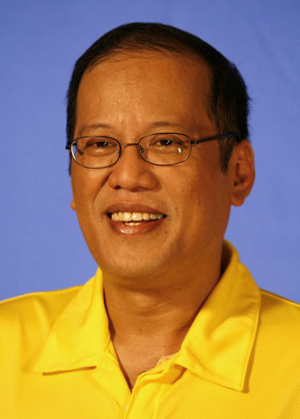By Hrvoje Hranjski
The Associated Press

Benigno Aquino III, current President of the Philippines (Photo by Jeffrey Avellanosa)
MANILA, Philippines (AP) — Newly elected Philippine President Benigno Aquino III on July 26 blasted his predecessor’s administration for what he called misguided and corrupt policies that nearly depleted the government’s coffers.
“The country was misled and kept in the dark about the true conditions of our country,” Aquino said in his first state of the nation address since assuming office last month. “As days go by, the massive scope of the problems we have inherited becomes much clearer.”
In the first six months of the year, former President Gloria Macapagal Arroyo’s administration spent more than it earned, pushing the budget deficit to 196.7 billion pesos ($4.2 billion), or 3.9 percent of gross domestic product, Aquino said.
He said his government was left with only 6.5 percent of this year’s budget of 1.54 trillion pesos ($33 billion). He suggested that money was spent on “useless” projects “which went to chosen beneficiaries only.”
Aquino said 60 percent of calamity funds earmarked for rehabilitation of typhoon-stricken areas had already been spent although the rainy season had just begun.
Arroyo’s former chief of staff, Elena Bautista, said public funds were used properly by her administration and a detailed explanation will be issued to counter Aquino’s allegations.
Although most of Aquino’s promises were not new, his speech still inspired people, ex- President Fidel Ramos said. “I know what he will say because I’ve also said those in my time.”
Arroyo, who stepped down last month after nine tumultuous years interspersed by coup attempts and allegations of misrule and rampant corruption, was not present for Aquino’s speech in the Philippine Congress. Newspapers published pictures of Arroyo — a newly elected representative from her home province — leaving for a trip to Hong Kong.
Aquino said he would sign an order creating a truth commission to investigate alleged wrongdoing committed under Arroyo. She has denied the accusations and said she was ready to face any investigations.
The son of two Philippine democracy icons, Aquino, 50, was a low-key legislator until he swept to a landslide win in May 10 elections — buoyed by his illustrious family name, his anti-corruption platform, and Filipinos’ longing for moral and political renewal.
In his speech, he promised that his government will provide jobs, health care, schools, and infrastructure to help farmers and to attract more investors, but such lofty objectives have eluded past administrations that failed to bridge the divide between the wealthy elite and the third of the 90 million population who live on a dollar a day.
Outside the House of Representatives building, police formed a cordon to stop about 6,000 protesters from getting close.
The demonstrators demanded land for peasants, jobs, and an end to human rights violations. They urged Aquino to jail Arroyo for alleged corruption as well as soldiers accused of killing activists.
Aquino said his government would resume talks with the main Muslim rebel group on ending decades of armed struggle for minority Muslim self-rule in the predominantly Christian nation’s south. ♦
Associated Press writers Jim Gomez and Teresa Cerojano contributed to this report.



